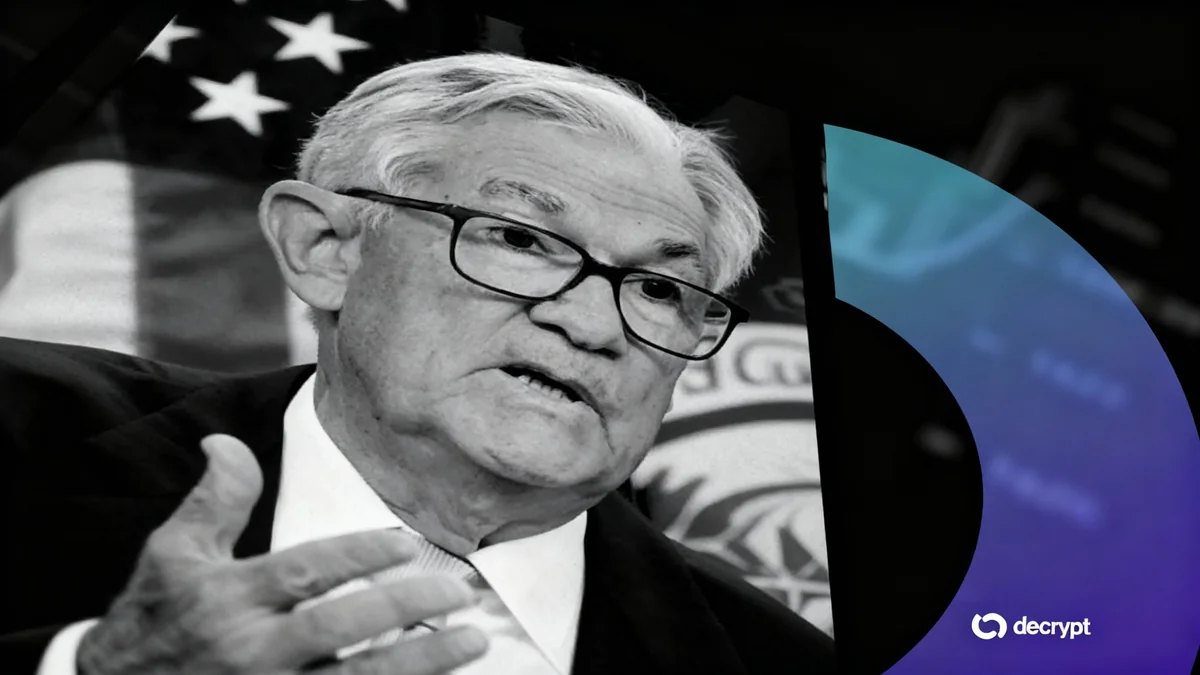The UK's Financial Conduct Authority (FCA) has significantly accelerated its approval process for cryptocurrency firms, reducing the average registration time by two-thirds. Despite this effort to streamline operations, the regulator has seen a notable decline in the number of new applications from digital asset companies.
Recent data shows the approval timeline has shrunk from an average of 17 months to just over five months. This change comes as the FCA works to address criticism that its previously slow process was hindering the UK's competitiveness in the global digital asset market.
Key Takeaways
- The FCA has reduced the average crypto registration time from 17 months to approximately 5 months.
- The approval rate for recent applications has risen to 45%, a sharp increase from the previous rate of less than 15%.
- Despite faster processing, the number of applications from crypto firms fell from 46 to 26 over a two-year period.
- Major financial institutions like BlackRock and Standard Chartered are among the firms recently approved by the UK regulator.
FCA Implements Faster Registration Process
The UK's financial watchdog has made a concerted effort to improve its cryptoasset registration scheme, which has been in place since 2020. This program requires all firms conducting crypto activities in the UK to demonstrate compliance with anti-money laundering and counter-terrorist financing regulations.
According to data provided to the Financial Times, the FCA approved five companies, including affiliates of BlackRock and Standard Chartered, since the beginning of April. During the same period, six other applications were either rejected, refused, or withdrawn by the applicants.
This results in a 45% acceptance rate for the recent cohort, a significant jump from the historical average where less than 15% of all applications received the green light. This indicates a more efficient, though still rigorous, evaluation system.
By the Numbers: A Changing Landscape
- Approval Time: Down from 17 months to 5 months.
- Recent Approval Rate: 45%
- Historical Approval Rate: <15%
- Total Registered Firms: 55
David Geale, the FCA’s executive director for payments and digital finance, confirmed the regulator's strategic shift. He stated that the agency has allocated more resources to streamline the process for all authorisations.
“We have made a conscious effort to put resources into this,” Geale explained. “We have sped up our authorisations across the piece and have made some quite significant progress.”
Declining Applications Despite Improvements
While the registration process is now faster, the number of firms seeking UK approval has decreased. The number of applications from crypto groups dropped from 46 in the year to April 2023 to just 26 in the year to April 2025.
Similarly, the number of annual approvals fell from eight in the 2022-23 period to three in 2024-25, though activity has picked up in the last six months. This trend suggests that some companies may be adopting a wait-and-see approach.
Industry experts believe this hesitation could be linked to the UK's forthcoming comprehensive regulatory framework for the crypto market, expected next year. Some firms may be pausing their applications to see the final rules before committing resources.
Brett Hillis, a partner at law firm Reed Smith, shared this perspective. “I don’t think interest in the UK has dropped, but I do think it’s possible that some firms are pausing to take stock and see how its crypto regulation develops,” he said.
Global Regulatory Competition
The FCA's move to speed up approvals comes amid increasing competition from other financial hubs. Jurisdictions like Dubai and Singapore are actively promoting themselves as crypto-friendly environments, creating pressure on the UK to remain competitive. The United States has also taken significant steps, such as approving spot Bitcoin ETFs for retail investors, a move the UK has been slower to adopt.
Industry Calls for a More Accommodating Stance
The FCA's historical caution has drawn criticism from industry leaders and political figures who argue that the UK is falling behind in the race to become a global crypto hub.
Simon Jennings, executive director of the UK Cryptoasset Business Council, highlighted the urgency. He noted that regulators in other countries are “actively courting digital asset businesses.”
“We’ve seen first-hand that even multibillion-dollar firms can spend years trying to secure UK authorisation — and the reality is, they won’t wait around forever,” Jennings added.
Former Chancellor George Osborne, now an adviser to the crypto exchange Coinbase, also voiced concerns. In a recent column, he wrote, “On crypto and stablecoins, as on too many other things, the hard truth is this: we’re being completely left behind. It’s time to catch up.”
A Proactive Approach to Guidance
To address these concerns and improve the quality of applications, the FCA has become more proactive. The regulator now offers pre-approval meetings with case officers to guide firms through the requirements. It has also hosted roundtables, webinars, and other events to clarify its expectations.
Geale emphasized that this engagement leads to better submissions. “What we tend to get is a better quality of application and that certainly speeds things up,” he said. He also stressed that the increased speed has not compromised regulatory standards: “While we have sped up, that will not have been through any reduction of standards.”
This collaborative approach has been well-received by some in the industry. Raphael Landesmann, regulatory counsel at crypto trading firm GSR, which registered in December, confirmed the FCA's efforts. “We have seen very considerable efforts by the FCA in that regard,” he said, noting that GSR was invited to an FCA workshop to help advise other firms on the registration process.
As the UK prepares to roll out its full crypto framework, the regulator's ability to balance speed, safety, and competitiveness will be crucial in determining London's future as a center for digital finance.





